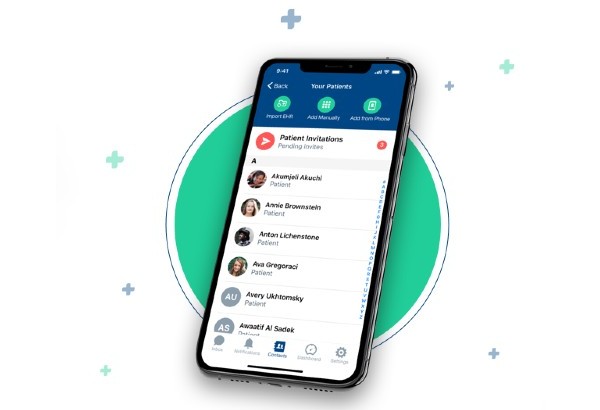
[Editor’s note: Future of Behavioral and Mental Health with BetterHelp, Headspace, Ginger.io, Providence Hospitals, UnitedHealthcare Optum, Khosla Ventures, Oak HC/FT and more has become 4 virtual conferences! Register one time for all 4 events! REGISTER. We also have our The Future of Virtual Care event on July 1. You can register for that HERE.]
The effect of coronavirus on the healthcare system in the long term is still up in the air; while we all assume it will look different once this is over, it’s not clear what that means. The short term effects might offer some clues, though, specially with telemedicine, which is finally having its moment. Forrester analysts estimate that there will be over one billion virtual visits conducted in 2020, up from 36 million last year. That includes over 900 million coronavirus-related visits alone.
As such, a number of companies in the space have been raising funding since the beginning of the year; the latest to announce a new round is virtual healthcare provider Medici, which raised $24 million in Series B funding from current investors, including Barry Sternlicht of Starwood Capital Group, Kenneth Griffin of Citadel, Nathan Kirsh of the Kirsh Group, Howard Jenkins of Publix, and Tom Meredith, formerly of Dell. With this new funding, the company has now raised over $70 million in total.
Founded in 2016, Medici, which is Latin for doctor, offers a HIPPA-compliant platform that allows physicians to communicate with patients via text, voice, or video. Doctors don’t have to share their personal number, and they can also invite patients directly from their EHR, organize consults, and manage multiple cases.
Medici also assists physicians with billing; allows doctors to prescribe medication through its ePrescribe feature; uses Medici Translate for real-time translation between providers and patients; has a feature called Colleague Connect, which allows physicians on the platform to network and collaborate with each other; and it also offers Medici Announce, which enables providers to send messages to patients who are both on and off Medici.
In addition, Medici also provides its doctors with $1 million in malpractice protection on top of their existing insurance.
“We are thrilled to have remarkable investors who really want to see lives and healthcare transformed,” Clint Phillips, CEO of Medici, said in a statement.
“Unlike Zoom or FaceTime, Medici allows you to text, ePrescribe, Refer, group chat, bill, translate, triage, keep your number private, your consults organized, and gives $1m liability insurance to physicians.”
The company, which has over 25,000 healthcare providers, has seen its number of patient registrations increase by 1,409 percent from February to April. Medici plans to deploy this new funding into expanding its team and to build out its technology.
Investing in the telemedicine space
Investments into telemedicine and virtual care were already on the upswing, growing by 55 percent to $1.8 billion in 2019, but they have absolutely exploded in 2020, raising nearly $800 million in just the first quarter of the year alone. That’s up 258 percent year-to-year, and it puts telemedicine on pace to raise over $3 billion this year.
Some of the companies that have raised funding this year have included: SonderMind, a telehealth platform focused on providing access to behavioral health specialists, which raised a $27 million Series B round; Maven, a company focused on providing women and families with virtual healthcare, which raised $45 million in Series C funding; and SilverCloud Health, a telehealth platform that helps treats a range of clinical mental health issues, which raised a $16 million Series B funding round.
Others include Heartbeat Health, a platform for virtual cardiovascular care, raised $8.2 million in a Series A round of funding; 98point6, a provider of AI-driven virtual doctor visits, which raised a $43 million Series D round of funding; XRHealth, a virtual reality therapeutic platform, which raised $7 million; and Tyto Care, a telehealth platform for remote medical examinations, which raised $50 million.
(Image source: medici.md)
























